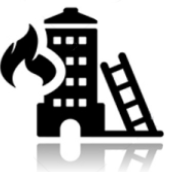Fire Safety
- Provide training and maintenance of guidelines and procedures aimed to assure the safety of students, faculty, staff and visitors.
- Audit fire protection and life safety systems for quality assurance.
- Protect university buildings and grounds while complying with codes and standards adopted by local, state and federal regulatory agencies.
